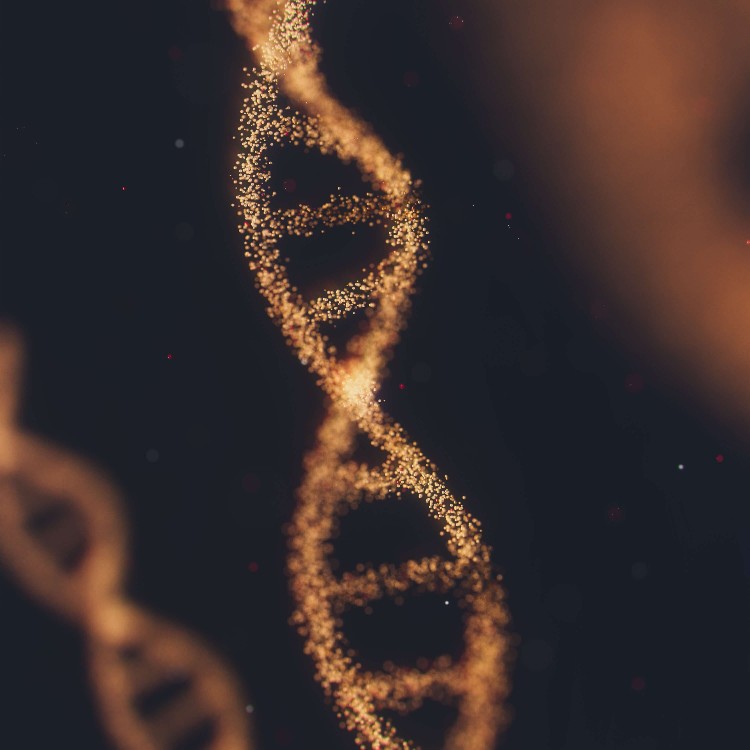
How to Slow Aging and Maintain Vitality
Aging is a normal process that every living organism goes through. This is a complex process that affects individuals differently as well as each organ. For centuries, people have tried to find a way to slow it down or reverse it. These human aspirations and desires have shaped the cultures of many nations throughout history. Today we are dealing with the aging process in detail and also answering a question many people are curious about: how to slow aging?
To better understand slowing down the aging process, let’s start with the concept of aging from a biological perspective.
Aging Process Basics
As we age, cells, tissues, and organ systems gradually lose their functions. A decline in organ functions is also accompanied by a loss of senses and psychophysical abilities. Many visible indicators follow this process, including wrinkles appearing, hair graying, strength waning, motor capabilities declining, etc. It is important to note that aging is also a risk factor for various chronic diseases.
However, what happens at the microlevel as we get older?
This process affects all cell types in the body. Over time, their ability to divide and reproduce is disrupted, which gradually decreases their function. Due to changes in cell membranes, cells are unable to obtain oxygen and nutrients, while excess waste products remain inside the cells. This leads to the reduction of connective tissue, which connects all the organs in the body. Over time, all organs slowly lose their function, increasing the risk of disease development.
Biological vs Calendar Age
Biological age and calendar age are two distinct but interrelated concepts that are important for understanding the aging process. Calendar age, also known as chronological age, is a measurement of the number of years a person has been alive. It serves as a standard metric for legal, social, and administrative purposes.
On the other hand, biological age refers to an individual’s physical condition as a measure of their age. It encompasses various factors, such as genetics, living style, and overall health. While two people may share the same calendar age, their biological ages can differ significantly. Factors like genetics, diet, exercise, stress management, and environmental conditions all influence biological age. Since it considers the body’s aging rate, this concept can predict longevity more accurately.
While we cannot change our calendar age, developing healthy habits can positively impact our biological age and help us maintain health and vitality.
Slowing Down or Reversing Aging?
It is essential to distinguish between slowing down and reversing aging. Slowing down aging involves many techniques that support a healthy lifestyle. These practices can promote longevity and maintain overall well-being.
Reversing aging, on the other hand, entails interventions that actively restore youthfulness at the cellular or molecular level. As we progress in age reversal, it’s important to continue scientific research, taking into account all ethical considerations. In the meantime, a balanced lifestyle remains the most reliable way for individuals to achieve healthy aging and vitality.
How to Slow Aging?
There are many improvements we can make in order to live healthier and longer lives. The most important are:
Regular Exercise
Regular exercise is a powerful tool for slowing down aging. It stimulates the production of growth hormones, strengthens muscles, and improves cardiovascular health. Exercise also reduces inflammation and oxidative stress, two key drivers of the aging process. It also enhances the body’s ability to repair DNA damage and maintain telomere length (parts of the chromosomes), both essential factors in cellular rejuvenation.
Healthy Eating
A healthy diet is based on a sufficient intake of quality proteins, unsaturated fats, and complex carbohydrates from vegetables, white meat, fruits, and nuts. It also includes additional, no less important, nutrients, such as vitamins, minerals, antioxidants, fatty acids, and other compounds necessary for proper body function. Healthy eating supports gut balance, which has been linked to various aspects of aging, including cognitive function. Do not forget about maintaining proper hydration! Adequate water intake is closely connected to proper digestion, optimal body temperature, as well as skin appearance and vitality.
Calorie Restriction
The practice of reducing calorie intake has emerged as a potent strategy to slow aging. Studies in animals have shown that this practice can extend lifespan and improve age-related health markers. Calorie restriction triggers various mechanisms, including enhanced cellular repair and increased production of sirtuins, proteins associated with longevity.
Intermittent Fasting
Intermittent fasting is a dietary approach that involves cycles of fasting and eating. This diet method induces metabolic changes that support cellular repair and rejuvenation. During fasting periods, the body activates autophagy, a process that removes damaged cellular components and waste materials. Intermittent fasting also reduces inflammation, improves insulin sensitivity, and enhances mitochondrial function, which collectively contribute to slowing down the aging process.
Stress Management
No matter how much we take care of proper nutrition and exercise, the presence of stress can change our health status and accelerate aging. Effective stress management is a pretty good answer to the question “how to age slower”. Stress-reduction techniques such as deep breathing, meditation, or yoga lower cortisol levels and reduce its harmful impact on our bodies. These practices also improve sleep quality, support a healthy immune system, and enhance overall well-being.
Quality Sleep
Quality sleep is a potent elixir for slowing down the aging process. During deep sleep, the body undergoes essential processes such as cell repair, immune system strengthening, and the removal of toxins from the brain. Consistent sleep is crucial for maintaining optimal hormone levels, including growth hormone and cortisol, which both have immense effects on the aging process. Sleep also supports proper cognitive function and emotional well-being.
Antioxidants
Antioxidants are one of the best anti-aging secrets. Although they are no longer a mystery as they were two or three decades ago, they are still heavily under research. We have listed antioxidants that have garnered vast public attention lately
- Polyphenols are complex compounds that have incredible health benefits since they act as antioxidants and modulators of genetic expression.
- Quercetin is mostly known for its anti-inflammatory properties. It reduces chronic inflammation, the main cause of aging.
- Resveratrol has been found in grapes and red wine. Its main role is the activation of sirtuins.
- Urolithin A: This polyphenol enhances mitophagy, a process that removes damaged mitochondria and thereby improves overall cellular health.
- Coenzyme Q10 (CoQ1) is essential for energy production. CoQ10 protects cells from oxidative damage and supports heart health.
- Glutathione is an antioxidant found in plants, animals, fungi, and bacteria. Its main benefits are body detoxification and immune function support.
- Curcumin is a strong antioxidant found in turmeric. The anti-aging effects of curcumin are attributed to its ability to reduce inflammation and fight oxidative stress.
- Alpha-Lipoic Acid (ALA) regenerates other antioxidants like vitamins C and E, amplifying their effects on neutralizing free radicals.
Food Supplements
Without quality food supplements, it is almost impossible to get enough essential nutrients into your body. There is the same problem with quality food from natural sources as well. For example, to meet our daily quercetin needs, we should eat around 2 kilograms of red onions! That sounds funny and, also, impossible.
However, there are food supplements that solve this problem successfully. We introduce you to VANA Health, a natural anti-aging supplement based on essential polyphenols. This unique food supplement consists of 1000 mg of vital polyphenols – resveratrol, quercetin, and urolithin A – which have incredible effects on the human body.
With 1000 mg of polyphenols and other active plant ingredients, you can:
- slow down your cell aging
- renew your skin
- maintain a healthy weight
- purify your body of heavy metals
- reduce water retention
- raise your energy level
- reduce stress levels
- improve sleep and immunity
- improve cognitive abilities
- fix digestive issues
All those effects can be achieved with regular use of the VANA Health food supplement. Don’t miss out on the opportunity to remarkably improve your health!
Better health starts now!
Skin Care Routine
A regular skincare routine is at the core of combating the signs of aging. Regular cleansing, moisturizing, and exfoliation remove dead cells, promote collagen production, and prevent skin dryness. The crucial element in any anti-aging skin routine is sun protection. UV rays from the sun accelerate skin aging, leading to dynamic and static wrinkles, fine lines, and age spots. Therefore, applying sunscreen with SPF during the summer is essential to shield the skin from harmful UV damage. The use of anti-aging products that contain retinoids, antioxidants, and peptides helps mitigate wrinkles and promote a more youthful complexion.
Cosmetic Procedures
Cosmetic procedures have revolutionized the field of anti-aging by offering targeted solutions to various signs of aging. Botox, for instance, effectively reduce wrinkles and fine lines by relaxing facial muscles. Hyaluronic acid fillers add volume and hydration to the skin, smooth out wrinkles, and restore a youthful appearance. Procedures such as chemical peels, microdermabrasion, and laser therapy rejuvenate skin texture and tone. In the hands of skilled professionals, cosmetic procedures can boost self-confidence and help you look more youthful and refreshed.
Mental Exercises
Activities like puzzles, card games, chess, learning new skills, etc. can help boost cognitive function and maintain mental agility. These exercises stimulate the growth of new brain cells, improve neural connections, and enhance memory and problem-solving abilities. Certain studies findings suggest mental exercises can reduce the risk of age-related cognitive decline and dementia.
Avoid Smoking, Alcohol, and Other Dangerous Habits
We all know that cigarettes and alcohol negatively affect our health and appearance. Cigarettes contain more than 250 harmful substances. These substances act as free radicals, attacking cells and accelerating aging. Excessive consumption of alcohol and drugs leaves serious consequences for the liver. Along with the adoption of healthier eating habits and physical activity, the only way to really slow down aging is to stop smoking and limit alcohol use.
Social Engagement
Numerous studies have shown that maintaining social connections can lower the risk of cognitive decline and even extend life expectancy. Meaningful social interactions with friends, family, or community groups provide emotional support, reduce stress, and promote mental well-being. Engaging in social activities and maintaining relationships not only offer a sense of purpose but also stimulate brain activity.
Conclusion
The pursuit of slowing down aging involves the intersection of science, conscious lifestyle choices, and wellness practices. Although we cannot completely stop aging, there are various changes we can all make to slow it down. Using these strategies can help us live longer, look younger, and feel healthier.
Frequently Asked Questions
Does fasting slow aging?
Yes, fasting has been proven to have anti-aging effects. Animal studies suggest that intermittent fasting promotes cellular repair, reduces inflammation, and enhances longevity-related pathways. When done in a controlled and healthy manner, it can potentially slow down the aging process and improve overall health.
Why am I aging so early?
Early aging can result from a combination of genetic factors, lifestyle habits, and environmental influences. Poor diet, lack of exercise, excessive stress, smoking, and sun exposure are common contributors to premature aging. Consulting with a healthcare professional can help determine the specific causes and strategies to mitigate the issue.
Can stress cause aging?
Yes, chronic stress accelerates the aging process. It triggers the release of stress hormones (adrenaline, cortisol, and norepinephrine), which can lead to cellular damage, inflammation, and oxidative stress. Over time, these factors contribute to premature aging and manifest as wrinkles, cognitive decline, and health issues. Managing stress is essential for healthy aging.
Why am I aging slowly?
A slower aging process can be attributed to a combination of factors, including genetics, a healthy lifestyle, and positive environmental influences. Genetics is the most significant factor, but choices such as a balanced diet, regular exercise, stress management, and avoiding harmful habits also contribute to a slower aging experience.


